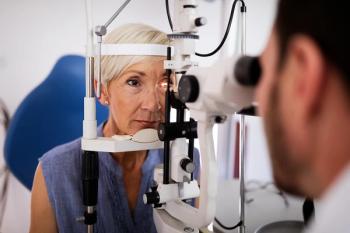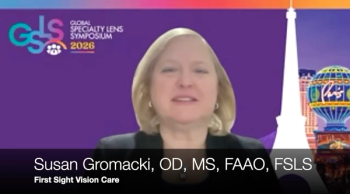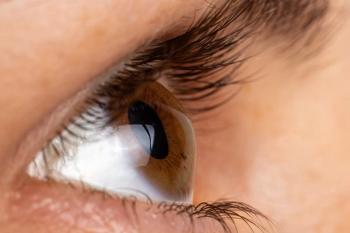
VEE 2023: Find out what's hot in retina with Dr. Mo
Mohammad Rafieetary, OD, shares key highlights from his VEE 2023 presentation looking at what's hot in retina.
Mohammaed Rafieetary, OD, caught up with Optometry Times® to share key takeaways from his discussion titled, "What's hot in retina?" which he presented during the 2023 Vision Expo East meeting in New York, New York.
Video transcript
Emily Kaiser:
Hi, everyone. I'm Emily Kaiser with Optometry Times and I'm sitting down with Dr. Mohammad Rafieetary, who presented, "What's Hot in Retina?" at Vision Expo East 2023 in New York City. Welcome, Dr. Rafieetary. Thank you for taking the time to talk to us.
Mohammad Rafieetary, OD:
Good morning, Emily. Thank you for inviting me to give this little brief description of my lecture: "What's Hot in Retina?"
The lecture basically tries to hit on--there are so many things going on. It's really not what's hot in retina; it's what's sizzling in retina right now. Nearly 40 novel medications in the pipeline, looking for diabetic retinopathy, diabetic macular edema, dry and wet macular degeneration, inherited retinal disorders, devices, home monitoring devices: There's a whole host of things going on.
It's a one-hour lecture, so I don't think I can fit everything in that one hour. But I'm going to talk fast and go over a bunch of, you know, topics and primarily, you know, invite colleagues to keep a watch on this stuff. You know, keep a watch on Optometry Times, other publications, you know, there are a lot of emails to, you know, that's coming to us, as opposed to look what's new, what isn't, what got FDA approved, what the FDA failed, whether the, you know, what are the study's results?
So it's exciting times, it's an exciting time to be involved with this. Not only retina, but the whole host of dry eye, you know, anterior segment disease. It is, and it's good to be in a meeting like Vision Expo to explore all this stuff.
Kaiser:
For sure. We're definitely in an age of innovation in optometry. It's very exciting. Do you have any specific areas that you're talking about that you would like to kind of highlight?
Rafieetary:
So I'm going to talk about, you know, geographic atrophy, the pegcetacoplan that was just approved, the avacincaptad pegol that's in the pipeline, I'm going to talk about the results of the ALOFT, which was a study looking at the Notal Vision ForeeeHome in early detection of wet macular degeneration. I'm going to talk a little bit about genetic testing and its availability, now through the Foundation for Fighting Blindness, you know. So those are some of the highlights. But like I said, there's a lot of things I'm going to try to go through quickly during the lecture.
Kaiser:
So how should clinicians respond to the information presented?
Rafieetary:
Well, they should absorb as much of it as they can. You know, in any given lecture, if any attendees pick up one or two points, and go home with those one or two points and try to follow up on those one or two points, the presenter's objective is accomplished, basically. Because again, when we, depending on the interest of the audience, and, you know, the level of excitement, everybody has a different take-home message. You know, but as a whole, this stuff is the beginning of your exploration of any of these topics, you know, because every one of these topics could take, you know, 10 or 12 hours to go over and discuss.
You know, many of this stuff is discussed as advisory boards, and in, you know, in writing publications, I mean, you cannot squeeze all that in a sardine can of a one or two hour lecture. So, yeah, I mean, it's the, it's an introduction to a subject or topic that colleagues would go home and explore further, basically.
Kaiser:
Well, you've got a tall task ahead of you. Do you have any takeaway points that you'd like optometrists to really hone in on?
Rafieetary:
Again, if there's something in the in the lecture that they hadn't heard about before and you know, it brings an excitement, I would encourage them to go and explore it thoroughly. Keep a watch on it. The education continues. Learn every day, basically.
Kaiser:
I couldn't agree more. Thank you so much for taking the time to chat today, and I can't wait to hear more!
Newsletter
Want more insights like this? Subscribe to Optometry Times and get clinical pearls and practice tips delivered straight to your inbox.




























